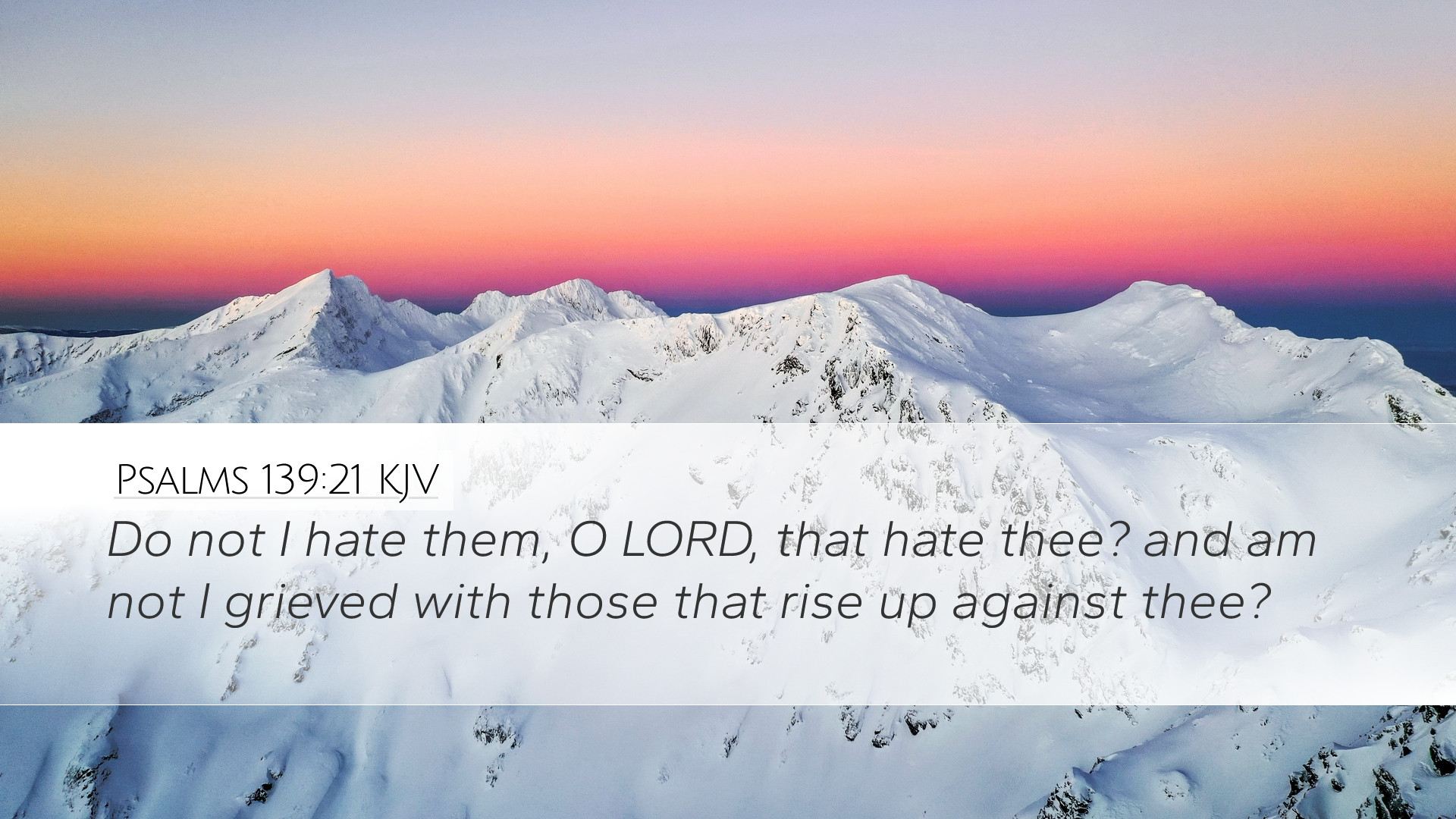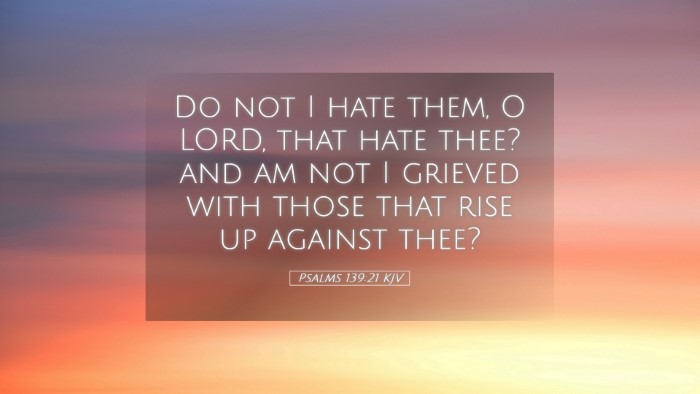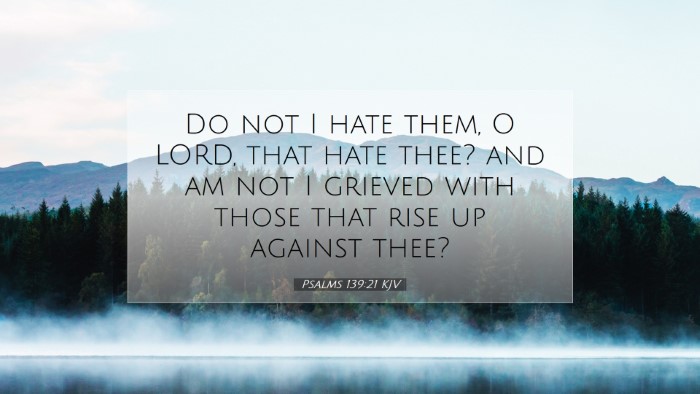Psalms 139:21 Commentary
Verse Reference: Psalms 139:21 - "Do not I hate them, O LORD, that hate thee? and am I not grieved with those that rise up against thee?"
Introduction
This verse from Psalms 139 is a stark expression of the psalmist's deep emotional response to God's enemies. It is a plea for alignment with God's own sentiments against sin and rebellion. Throughout the psalm, the themes of God's omniscience, omnipresence, and the believer's relationship with God are woven together, culminating in this heartfelt cry of aversion to those who oppose the divine will.
Contextual Background
The Book of Psalms, traditionally attributed to David, is a collection of hymns and poems that express a vast range of human emotions and divine truths. Psalms 139 stands out as a profound meditation on God's intimate knowledge of humanity, simultaneously revealing the psalmist's understanding of divine justice and personal integrity.
In this specific verse, the psalmist grapples with the reality of hatred toward God's adversaries. It reveals a dualistic perspective: on one hand, there's a personal attachment to God's honor, while on the other, it underscores the psalmist's understanding of righteousness.
Exegesis and Insights from Commentaries
Several public domain commentaries offer significant theological insights into this verse:
-
Matthew Henry:
Matthew Henry emphasizes the personal nature of the psalmist's hate, stating that it arises from a zealous love for God. He articulates that the hatred expressed is not malicious but rather a righteous indignation against those who openly defy God. Henry points out that true allegiance to God naturally leads to a disdain towards those who oppose Him, suggesting that such feelings are appropriate for those who are deeply committed to God's glory.
-
Albert Barnes:
Barnes observes that the psalmist is grappling with the emotional conflict that arises from loving God and hating His enemies. He interprets the verse as a reflection of the internal struggle within a believer, highlighting that the psalmist expresses a fundamental principle of faith: those who love God will invariably oppose His adversaries. This hatred is not personal but is rooted in the honor of God and His commandments.
-
Adam Clarke:
Clarke provides a nuanced view, suggesting that the psalmist's grief over God's enemies indicates a spiritual burden that comes from aligning oneself with God's will. He underscores that the psalmist's sorrow is not about seeking vengeance but is rather a lament for the spiritual state of those who rise against God. This duality illustrates the deep emotional ties a believer has not only to God but also to the moral fabric of the universe.
Theological Reflections
In contemplating Psalms 139:21, we are led to reflect on the interplay between love and hatred as it pertains to our relationship with God. The psalmist delineates a critical aspect of the faith experience: unity with God's perspectives, especially concerning His righteousness. This is a vital consideration for pastors and theologians alike as it opens discussions on how believers can engage with a world that often opposes God’s will.
The Nature of Righteous Indignation: The expression of hatred in the verse can be seen through the lens of righteous indignation. It prompts the faithful to consider their emotional responses towards sin and its manifestations in the world. Are we deeply grieved by the sin that exists around us? Are we aligned with God's sorrow over humanity's rebellion?
The Call to Holiness: As believers, there exists a divine call to holiness that requires a distaste for sin. This verse serves as a poignant reminder that a true relationship with God involves recognizing and opposing those things that stand in direct opposition to His character. The passionate desire to align with God's heart can sometimes lead to difficult emotions; however, those emotions are often the catalysts for deeper spiritual growth.
Conclusion
Psalms 139:21 encapsulates the complex realities of walking with God in a fallen world. The articulated sentiments of hate towards God's enemies serve as a divine invitation to reflect upon our own hearts and our allegiances. Pastors, students, theologians, and scholars are encouraged to delve deeper into the implications of this verse, recognizing that our relationship with God invites us into His perspective on righteousness, justice, and the nature of our response to sin.
May this exploration lead to a richer understanding of God's nature and a more profound commitment to live in alignment with His will.


